
When Americans think of turquoise, they usually think next of the Native peoples of the Southwest. And with good reason. For more than a thousand years, the Indigenous people of this part of the U.S. have had a profound relationship with turquoise. The stone's stunning colors, most commonly blue to green, hold the key to what makes it so special.
TURQUOISE FACTS
Turquoise can be found in different parts of the world, but in North America, the desert Southwest provides the greatest source. The gemstone is formed only in arid climates when meteoric water originally from rain or melted snow percolates through voids in course copper-rich igneous rock. Turquoise results from the chemical reactions of the minerals that fill the void within the host rock, which is usually rhyolite, limestone, quartz or chert. The color of turquoise produced is reflected by the amounts of metal in the host stone. A higher incidence of copper produces a bluer turquoise, while more iron results in a green coloration. High levels of zinc give the turquoise a yellower tone.
Turquoise has been mined in the U.S. for hundreds of years, with more than 400 turquoise mines in operation in Arizona, New Mexico, Nevada, Colorado and California over the past two centuries. The first turquoise miners were the Pueblo peoples, who used stone mauls, axes and chisels to remove it from its host rock. In 1908, turquoise became popular with tourists visiting the Southwest, and prospectors came to the area to mine it. The stone’s popularity soared to new highs in the late 1920s and early 1930s, resulting in the operation of more mines.
COLORS OF LIFE
This story is from the Rockhound Roadtrip 2024 edition of Rock&Gem Magazine.
Start your 7-day Magzter GOLD free trial to access thousands of curated premium stories, and 9,000+ magazines and newspapers.
Already a subscriber ? Sign In
This story is from the Rockhound Roadtrip 2024 edition of Rock&Gem Magazine.
Start your 7-day Magzter GOLD free trial to access thousands of curated premium stories, and 9,000+ magazines and newspapers.
Already a subscriber? Sign In
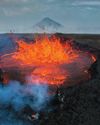
THE BRIGHT SIDE OF VOLCANIC ROCK
As a mineral resource, volcanic rock is decidedly short on glamour.
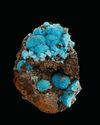
The Other Copper Minerals
12 Lesser-known Collectible Species

MINERAL COLLECTING -AND ROCK & GEM
Evolving Together FOR 54 YEARS
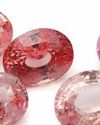
Gemstone Trends
A Look Back at 2024 & What to Expect in 2025
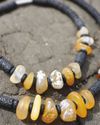
How to Make a GEM BEAD NECKLACE
No Lapidary Experience Needed!
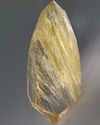
Framing Nature's Art
Faceting Rutilated Quartz for Beginners
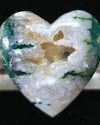
BEDAZZLED BLUE SEAM AGATE
More than several centuries ago, mining was the profession most often seen as befitting of men.
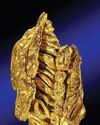
ROCK & GEM FIELD GUIDE:
Spinel is a captivating gemstone with a rich history of being mistaken for gems like ruby and sapphire.
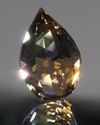
SNAKE SCALE DROP 1.5:1
This Faceting Focus is revisiting the briolette gemstone design because of its popularity with independent and hobby gemstone faceters.

STONE CHIC
How Earth-Inspired Decor Brings Comfort to our Home